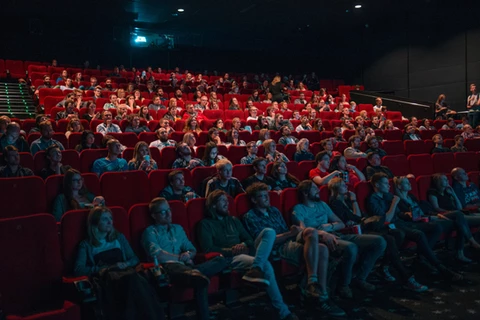- Warner Bros. announcement this week may accelerate the decline of movie theaters.
- Its getting more difficult for theaters to survive in a Post-COVID world.
- As a result, commercial property owners need to get creative with their anchor space.
In case you missed it – Warner Bros. made a pretty big announcement last week. It announced that it was going to release all of its 2021 movies directly on to HBO Max (which it also owns). After a month on HBO Max, the new releases will be removed and put exclusively into theaters.
This, rightly, was reacted to as very big news throughout the movie industry. Its one of the more significant developments in a long time in that industry. But what – if anything – does it mean for commercial real estate? Will it change movie theaters? That’s what I discuss in this week’s blog entry.
Full disclosure up front – I love going to the movies. When MoviePass existed – I was a customer. And one they lost a lot of money on because I would go to the movies at least once per week. And since MoviePass died, I’ve been an Alamo Season Pass Member. Clearly, I love going to the movies. So changes that hurt theaters are personal to me.
Now that that is out of the way – lets look at how the movie theater business will change and what that means for commercial real estate owners.
The Future of Brick and Mortar Movie Theaters
While the announcement from Warner Bros. certainly hurts the future of movie theaters, it was not the beginning of their decline. This trend has been coming for the last few years.
As you probably know based on your own viewing habits, the movie industry has changed a lot in the last few years with the rise of streaming services (Netflix, Hulu, Amazon Prime, etc.). These services have had new movies that go straight to their services and not into movie theaters (or into movie theaters at the same time).
In addition to that, home theater systems have seen great improvement in the last 10 or so years. The availability of large TVs with great sound systems makes it more likely that people are willing to watch movies at home versus going to the theater. And, of course, COVID has accelerated this trend for theaters.
As we have seen, this has made operating movie theaters very difficult. Indeed, in the last six months, Regal, Cinemark, and AMC have all closed large numbers of theaters – at least temporarily.
So what theaters will survive? Most likely it will be theaters that provide a viewing experience above and beyond just watching a movie in a cushioned folded seat. Theaters like Alamo Drafthouse or The Moviehouse and Eatery that provide reclining seats and full menu service are much more likely to survive the destruction.
Where does that Leave Commercial Property Owners?
That, of course, leaves a big hole for commercial property owners in their retail centers. Theaters have often been anchor tenants for malls and other retail properties. With the closing of theaters, commercial property owners have to get more creative in how to fill those spaces. This is another opportunity for creative developers and investors to think outside the box to fill those spaces. A few possibilities include –
As stated above, one potential solution is to bring in a more full service theater.
Also, theaters are large spaces. Its possible those spaces could be converted to other uses. For example, a grocery store or pharmacy may be interested in renting out the space a theater.
One last interesting development in the movie world. The drive-in theater is back. Drive-ins have been popping up all across the country. And they do not necessarily have to be the huge screens in large spaces like they were in the 50s, 60s, and 70s. Smaller spaces have been reconfigured to host smaller drive-ins. For example, Texas developer Presidium Group has used a small space on Pleasant Valley Drive in Austin to set up a small drive-in theater.
As we have been discussing in this blog, the world is changing. That presents many opportunities for commercial property owners. They just have to be creative about it.



